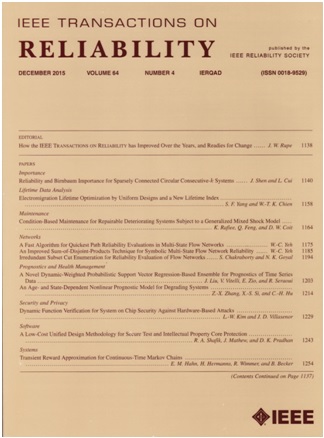基于气动音频信号和深度学习方法的可靠风力发电机叶片性能监测系统
IF 5.7
2区 计算机科学
Q1 COMPUTER SCIENCE, HARDWARE & ARCHITECTURE
引用次数: 0
摘要
风力涡轮机已成为一种突出的环保能源发电解决方案。然而,随着新材料的广泛使用,确保这些器件的可靠性已成为一个关键问题。作为风力发电机组中最昂贵的部件,开发高效、经济的叶片监测方法已成为研究热点。在本文中,我们提出了一种新的wtb监测系统,该系统采用基于医学听诊方法的深度卷积神经网络方法。该系统的设计兼顾了经济效益和工程可靠性。首先,我们提出了一种基于边缘计算的轻量级wtb监测框架,该框架利用风力涡轮机可编程逻辑控制器输出的信号,有效收集相关气动音频信号,同时过滤掉无关数据。其次,我们提出了一套音频增强算法,该算法采用多尺度特征提取、自适应掩模定位和深度神经网络来降低WTBs产生的音频信号中的噪声。第三,我们引入了一种新的方法来压缩深度卷积神经网络,使其适用于资源受限的边缘计算设备,并有效地利用音频生成的频谱图来诊断wtb中的故障。本文章由计算机程序翻译,如有差异,请以英文原文为准。
Reliable Wind Turbine Blade Performance Monitoring System Using Aerodynamic Audio Signals and Deep Learning Approaches
Wind turbines have emerged as a prominent and environmentally friendly energy generation solution. However, with the widespread use of new materials, ensuring the reliability of these devices has become as a critical issue. Developing efficient and cost-effective monitoring methods for the wind turbine's blades (WTBs), the most expensive components of wind turbine, has become a focal point of research. In this article, we present a novel monitoring system for WTBs that employs a deep convolutional neural network approach based on the medical auscultatory method. The system is designed to balance economic efficiency and engineering reliability. First, we proposed a lightweight WTBs monitoring framework based on edge computing that leverages the signals from the programmable logic controller output of wind turbine to enable efficient collection of relevant aerodynamic audio signals while filtering out irrelevant data. Second, we present a set of audio enhancement algorithms that employ multiscale feature extraction, self-adaptive mask targeting, and deep neural networks to reduce noise in the audio signals generated by WTBs. Third, we introduce a new approach for compressing deep convolution neural networks that makes them suitable for resource-constrained edge computing devices and efficiently utilizes audio-generated spectrograms to diagnose faults in WTBs.
求助全文
通过发布文献求助,成功后即可免费获取论文全文。
去求助
来源期刊

IEEE Transactions on Reliability
工程技术-工程:电子与电气
CiteScore
12.20
自引率
8.50%
发文量
153
审稿时长
7.5 months
期刊介绍:
IEEE Transactions on Reliability is a refereed journal for the reliability and allied disciplines including, but not limited to, maintainability, physics of failure, life testing, prognostics, design and manufacture for reliability, reliability for systems of systems, network availability, mission success, warranty, safety, and various measures of effectiveness. Topics eligible for publication range from hardware to software, from materials to systems, from consumer and industrial devices to manufacturing plants, from individual items to networks, from techniques for making things better to ways of predicting and measuring behavior in the field. As an engineering subject that supports new and existing technologies, we constantly expand into new areas of the assurance sciences.
 求助内容:
求助内容: 应助结果提醒方式:
应助结果提醒方式:


